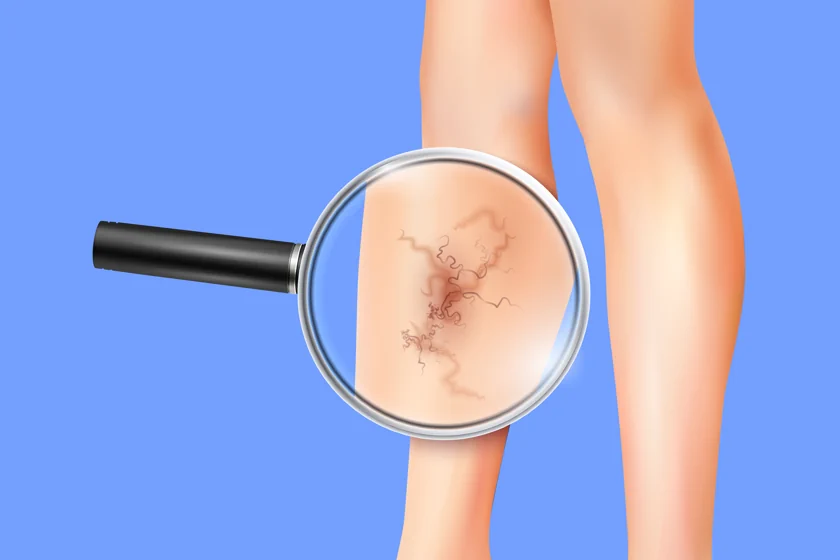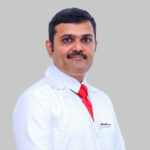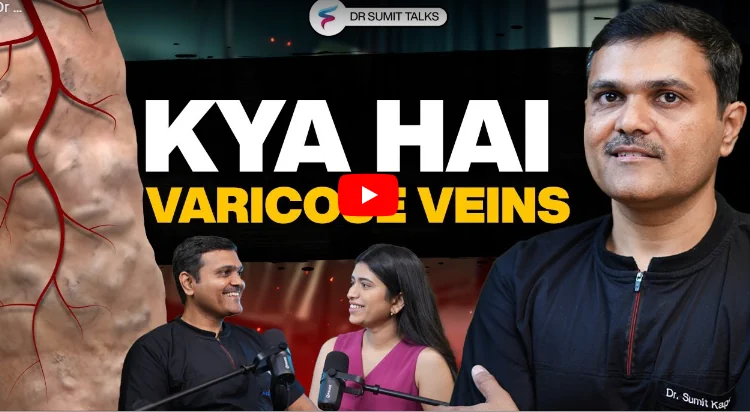
You’re at a family gathering, enjoying a lively conversation when someone nudges you, pointing out the unsightly, bulging veins on your legs. What was once a minor inconvenience is now the center of attention, leaving you feeling self-conscious and uncomfortable.
Varicose veins can turn a simple outing into a source of distress, but they don’t have to remain a permanent fixture.
Fortunately, the medical field offers a range of effective treatments to address varicose veins. From innovative laser therapies to advanced adhesive or Glue techniques, modern solutions can help restore the appearance and comfort of your legs.
Dr. Sumit Kapadia, a leading varicose vein specialist, provides expert insights into the various treatment options available today.
In this blog, we’ll explore these treatments in detail, helping you understand how each method works and which might be the best fit for your situation.
What are Varicose Veins?
Varicose veins are dilated, swollen veins that often appear as twisted, bulging cords under the skin, primarily in the legs. They occur when the valves within the veins, which are responsible for ensuring blood flow toward the heart, become weakened or damaged.
This malfunction causes blood to pool and the veins to enlarge. Varicose Veins symptoms can range from mild discomfort and aching to more severe issues such as swelling, heaviness, and even skin ulcers.
In India, varicose veins affect a significant portion of the population, with estimates suggesting that approximately 23% of adults experience this condition. The prevalence is higher among women, particularly those who are pregnant or have had multiple pregnancies, due to hormonal changes that affect vein elasticity.
Additionally, lifestyle factors such as prolonged standing or sitting, obesity, and a sedentary lifestyle contribute to the condition’s development.
Recent studies indicate that varicose veins are not just a cosmetic concern but a health issue that can impact quality of life. With India’s growing urban population and changing lifestyles, understanding and addressing varicose veins has become increasingly important. Early diagnosis and effective treatment can alleviate symptoms and prevent further complications, making it crucial to seek professional advice from experts like Dr. Sumit Kapadia.
Also Read : Effective Ways to Reduce Leg Swelling
Types of Varicose Vein Treatments
Here are the best options for treating varicose veins:
Endovenous Laser Ablation (EVLA)
What it is: EVLA is a minimally invasive procedure that uses laser energy to seal off varicose veins. A laser fiber is inserted into the affected vein through a small incision. The laser heats and destroys the vein’s lining, causing it to collapse and eventually be absorbed by the body.
Pros:
- Minimally invasive with no need for general anesthesia.
- Quick recovery time with most patients resuming normal activities within a few days.
- High success rate with minimal scarring.
Cons:
-
- Some patients may experience bruising or swelling.
- Requires a follow-up to monitor the treated veins and ensure proper healing.
Also Read: Best Workouts for blood Circulation
Sclerotherapy Treatment
What it is: Sclerotherapy involves injecting a sclerosant solution directly into the varicose vein. This solution causes the vein to collapse and be reabsorbed by the body. It is primarily used for smaller veins and spider veins.
Pros:
- Effective for treating smaller veins and spider veins.
- No need for anesthesia or incisions.
- Minimal recovery time with most people resuming normal activities quickly.
Cons:
- Multiple sessions may be needed for optimal results.
- Some patients may experience temporary discoloration or bruising.
Also Read: Can Varicose Veins Cause Skin Discoloration?
Endoscopic Perforator Ligation
What it is: This procedure is used for severe cases of varicose veins. It involves the insertion of a tiny camera through small incisions to guide the removal or closure of the affected veins, with this procedure being most effective for perforating veins. However, its use has reduced in recent times with the availability of doppler guided sclerotherapy
Pros:
- Effective for large or complex varicose veins.
- Minimizes the risk of complications compared to traditional varicose veins surgery types.
- Generally leads to significant improvement in symptoms.
Cons:
- Requires general anesthesia and a longer recovery period compared to other treatments.
- Possible risks include infection or bleeding.
Venefit (formerly known as VNUS Closure) or Radiofrequency Ablation (RFA)
What it is: Venefit uses radiofrequency energy to heat and close the varicose veins. A catheter is inserted into the vein, and the radiofrequency energy is delivered to shrink and seal the vein. As compared to Laser, the energy and heat generated is less.
Pros:
- Minimally invasive with a high success rate.
- Short recovery time with minimal downtime.
- Effective for treating larger varicose veins.
Cons:
- Some discomfort and bruising may occur.
- Might have reduced efficiency in treating larger veins (due to lower temperatures)
- Follow-up appointments are necessary to ensure the effectiveness of the treatment.
Varithena
What it is: Varithena is a foam-based sclerosant that is injected into the varicose veins to collapse and seal them. The foam provides better contact with the vein walls compared to liquid sclerosants.
Pros:
- Effective for treating both large and small veins.
- Minimally invasive with a quick recovery time.
- Suitable for veins that are difficult to treat with other methods.
Cons:
- May require multiple sessions for complete results.
- Potential for temporary side effects like swelling or discoloration.
- No yet available in IndiaAlso Read: The Role of Genetics in Varicose Veins
Ambulatory Phlebectomy
What it is: This procedure involves the removal of varicose veins through tiny incisions made in the skin. The veins are extracted using specialized instruments.
Pros:
- Direct removal of varicose veins with immediate results.
- Minimal scarring and a quick recovery period.
- Effective for large veins close to the skin’s surface.
Cons:
- Requires local anesthesia and small incisions.
- Possible side effects include bruising and swelling.
VenaSeal Treatment (Glue Ablation)
What it is: VenaSeal uses medical adhesive (glue) to close off varicose veins. The adhesive is injected into the vein, causing it to seal shut and eventually be absorbed by the body.
Pros:
- Non-thermal method with no need for heat or lasers.
- Quick procedure with minimal discomfort.
- Immediate results with a shorter recovery time.
Cons:
- Higher cost compared to other treatments.
- Some patients may experience minor complications such as tenderness or swelling.
- Allergic reaction to glue has been reported in 1 to 2% of people
Varicose Vein Specialist in India – Dr. Sumit Kapadia
When it comes to treating varicose veins, expertise is crucial. Dr. Sumit Kapadia is a leading varicose veins surgeon in India, known for his comprehensive approach and cutting-edge treatments.
With years of experience and a track record of successful outcomes, Dr. Kapadia provides personalized care to ensure the best possible results for his patients. His clinic offers a range of advanced treatments, including endovenous laser ablation, sclerotherapy, and more.
Conclusion
Varicose veins can be more than just a cosmetic concern—they can impact your comfort and quality of life. Fortunately, there are numerous effective treatments available to address this condition. From endovenous laser ablation to sclerotherapy and beyond, each treatment offers unique benefits and considerations.
Dr. Sumit Kapadia, a leading varicose veins surgeon in India, provides expertise and personalized care to help you choose the best treatment for your needs. Whether you’re dealing with large, bulging veins or smaller spider veins, exploring your treatment options with a specialist can lead you to the relief and confidence you seek.
If you’re struggling with varicose veins, don’t hesitate to seek professional advice. With the right treatment and care, you can look forward to healthier, more comfortable legs and a renewed sense of self.
FAQs
The choice of treatment depends on the severity of your condition, the size of the veins, and your overall health. A consultation with a specialist like Dr. Sumit Kapadia will help determine the best approach based on your specific needs.
Many insurance plans in India cover varicose vein treatments, especially if they are deemed medically necessary. It’s best to check with your insurance provider and discuss coverage options with your healthcare provider.
Recovery time varies depending on the treatment. For most minimally invasive procedures like sclerotherapy and EVLA, patients can resume normal activities within a few days. More invasive procedures like endoscopic vein surgery may require a few weeks for full recovery.
Common side effects include bruising, swelling, and temporary discomfort. More serious complications are rare but can include infection or blood clots. Discuss potential side effects with your doctor to make an informed decision.
While treatments are effective at closing or removing the veins, new veins can develop over time, especially if underlying risk factors are not managed. Maintaining a healthy lifestyle and following your doctor’s advice can help minimize the risk of recurrence.

MBBS, MS, MRCS, DNB-Fellow
Dr. Sumit Kapadia
Dr. Sumit Kapadia / MR KAPADIA SUMIT a gold-medalist from Baroda Medical College, obtained his general surgical training and senior residency from SSG Hospital, Vadodara.

MBBS, MS, MRCS, DNB-Fellow
Dr. Sumit Kapadia
Dr. Sumit Kapadia / MR KAPADIA SUMIT a gold-medalist from Baroda Medical College, obtained his general surgical training and senior residency from SSG Hospital, Vadodara.




